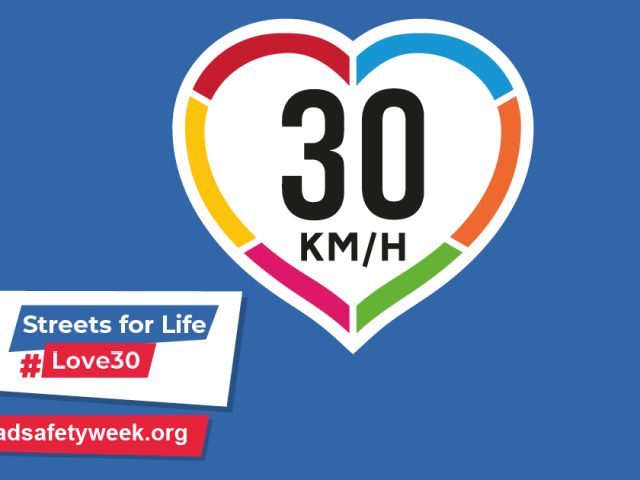This list of countries making the most progress on road safety in Europe might surprise you
- Estonia, Greece, Lithuania, Latvia and Portugal have reduced road deaths the most since 2010
- Estonia to receive the 2020 European Transport Safety Council Road Safety Performance Index Award
- Road deaths in Malta, the Netherlands and the UK were higher in 2019 than in 2010
- EU “almost certain to miss” 2020 target to halve road deaths
17 June 2020
Brussels – The Baltic States, together with Greece and Portugal, were the best performing countries in the EU according to a new report on the progress made reducing road deaths in Europe since 2010, published today by the European Transport Safety Council.
Estonia will be awarded this year’s ETSC Road Safety Performance Index (PIN) award at an online event at 11am CEST today. This Baltic State now has a level of road mortality (road deaths per million inhabitants) comparable to The Netherlands – a remarkable accomplishment and a reflection of significant investment and strategic leadership on road safety over several years.
The new analysis also shows that two of Europe’s traditional leaders on road safety: the Netherlands and the United Kingdom, while remaining relatively safe when compared on road mortality, had more road deaths in 2019 than in 2010. France, Sweden and Germany have also shown disappointing progress over the last nine years with only modest reductions in deaths. Bulgaria and Romania remain Europe’s worst performers in terms of road mortality and have also made below-average reductions in recent years.
The EU, and its Member States, agreed a target to cut road deaths by half in the decade to 2020. With one year left until full data for 2020 are available, that target will almost certainly be missed. That is likely to be the case even taking account of the significant drop in road deaths that have occurred in several countries in recent months as a result of Covid-19 lockdown policies.
Antonio Avenoso, Executive Director of the European Transport Safety Council, commented:
“While progress across Europe has disappointed over the last nine years, some countries have been quietly undergoing a road safety revolution. We’re delighted to award Estonia this year for its remarkable progress, following Ireland’s win in 2019.”
“Overall, EU Member States will need to step up a gear to hit the new targets for 2030. But the recent response to the Covid-19 epidemic may signal a way forward. A dramatic shift to walking and cycling in urban areas, combined with infrastructure changes and lower speed limits, could have a massive impact on road death and injury. But if we just revert to business-as-usual after this crisis, the results could be even worse than before. There are danger signs already in the large numbers of speeding offences being reported as lockdowns are lifted, which only adds to the work of overstretched police and emergency services.”
Road safety in the EU is likely to see a boost over the next decade thanks to new legislation on minimum vehicle and infrastructure safety standards agreed last year. But much will depend on the detailed technical standards for the new laws, which are currently being worked out. ETSC is particularly concerned about the requirements for Intelligent Speed Assistance (ISA) technology for new cars, and “direct vision” standards (to improve visibility around the vehicle for drivers) for new Heavy Goods Vehicles, which both risk being watered down following motor industry pressure.
Download the full report from www.etsc.eu/pin14

Relative change in road deaths between 2010 and 2019. *National provisional estimates used for 2019, as final figures for 2019 are not yet available at the time of going to print. **UK data for 2019 are the provisional total for Great Britain for the year ending June 2019 combined with the total for Northern Ireland for the calendar year 2019.

Road mortality (road deaths per million inhabitants) in 2019 (with mortality in 2010 for comparison). *National provisional estimates used for 2019, as final figures for 2019 are not yet available at the time of going to print. **UK data for 2019 are the provisional total for Great Britain for the year ending June 2019 combined with the total for Northern Ireland for the calendar year 2019.
Notes to editors:
- Data for the United Kingdom are excluded from aggregate EU data in this year’s ETSC PIN Annual Report, following the UK’s exit from the European Union on 31 January 2020. UK data are included in the report as the UK continues to participate in the ETSC Road Safety Performance Index (PIN) programme, alongside 27 EU and 5 other non-EU countries.
- ETSC’s Road Safety Performance Index (PIN) programme receives financial support from the German Road Safety Council (DVR), Toyota Motor Europe, the Swedish Transport Administration, the Norwegian Public Roads Administration and CITA – the International Motor Vehicle Inspection Committee.
- ETSC is a Brussels-based independent non-profit making organisation dedicated to reducing the numbers of deaths and injuries in transport in Europe.








